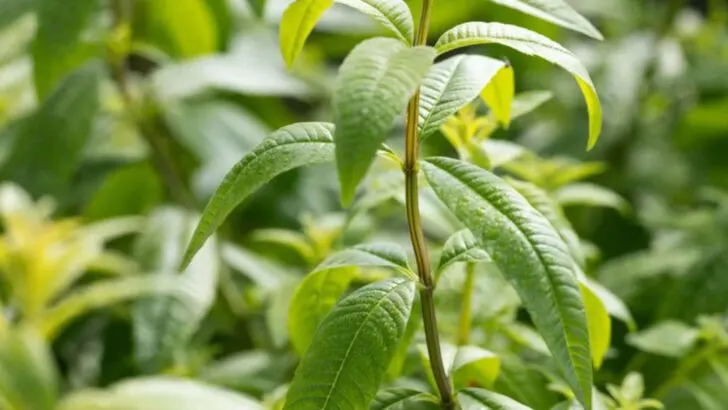Imagine stepping outside and snipping fresh ingredients right from your cocktail garden—whether you have a sprawling backyard or just a small balcony. Growing your own herbs and fruits for drinks not only adds incredible flavor but also turns mixing cocktails into a truly personal and sustainable experience. It’s easier than you think to create your own little bar right at home.
From classic favorites like mint, basil, and rosemary to unexpected stars like lemongrass and edible flowers, these plants bring vibrant aromas and tastes that elevate any drink. Plus, having fresh garnishes on hand means you’ll never have to settle for boring cocktails again. The best part? Many of these plants are compact and perfect for container gardening.
Whether you’re a seasoned gardener or a complete beginner, this list of 17 essential plants will help you set up your perfect cocktail garden anywhere—from a cozy balcony to a sunny backyard. Cheers to homegrown refreshment!
Mint
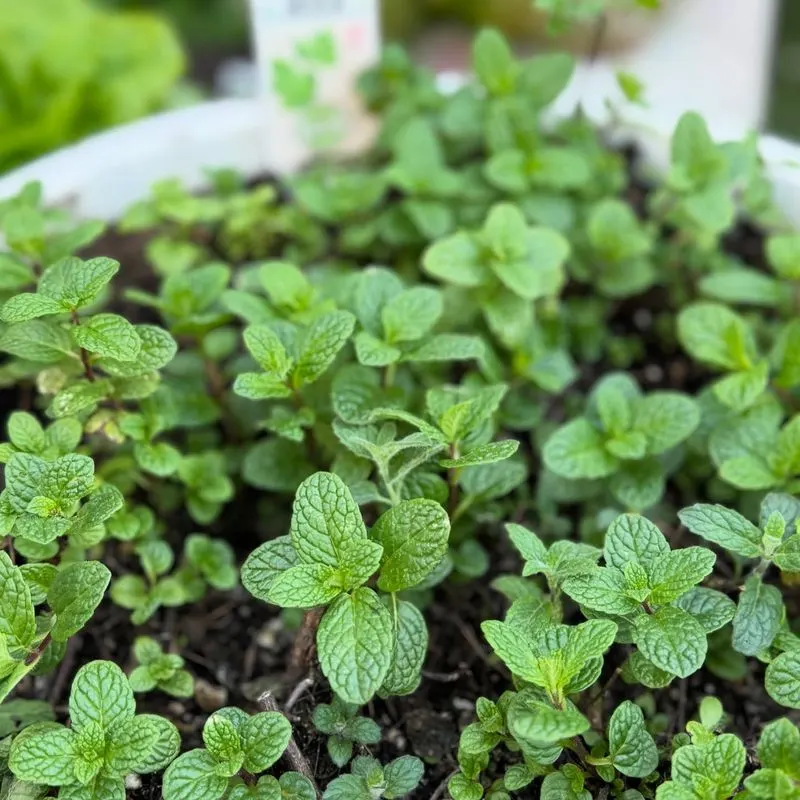
Mint’s refreshing aroma makes it an essential ingredient for mojitos and juleps. Its easy-to-grow nature suits both balconies and backyards, and it can thrive in containers or garden beds. To keep it from becoming invasive, consider planting it in a pot. Besides cocktails, mint leaves can garnish desserts or enhance teas, making it a versatile addition to any home garden. Want a tip? Regular pruning keeps the mint bushy and vigorous, ensuring you have a steady supply. With its vibrant green leaves, mint is as attractive as it is useful.
Lavender
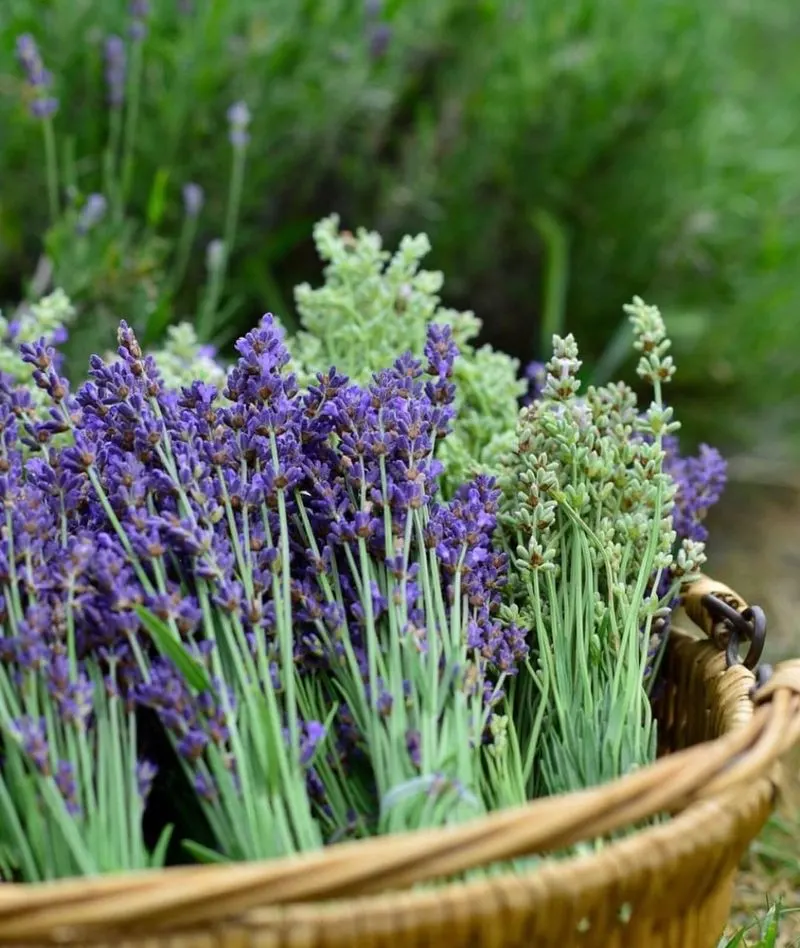
Lavender brings a floral note to cocktails, perfect for infusions and garnishes. Its calming scent adds a touch of elegance, and the purple flowers attract pollinators, enhancing your garden’s biodiversity. Whether you’re crafting a lavender syrup or simply garnishing a gin cocktail, this plant offers versatility. To grow it, ensure it receives plenty of sunlight and well-drained soil. Pruning after blooming promotes new growth and a fuller plant. Ideal for garden borders or pots, lavender’s aroma will enchant anyone who steps into your outdoor space.
Lemon Balm
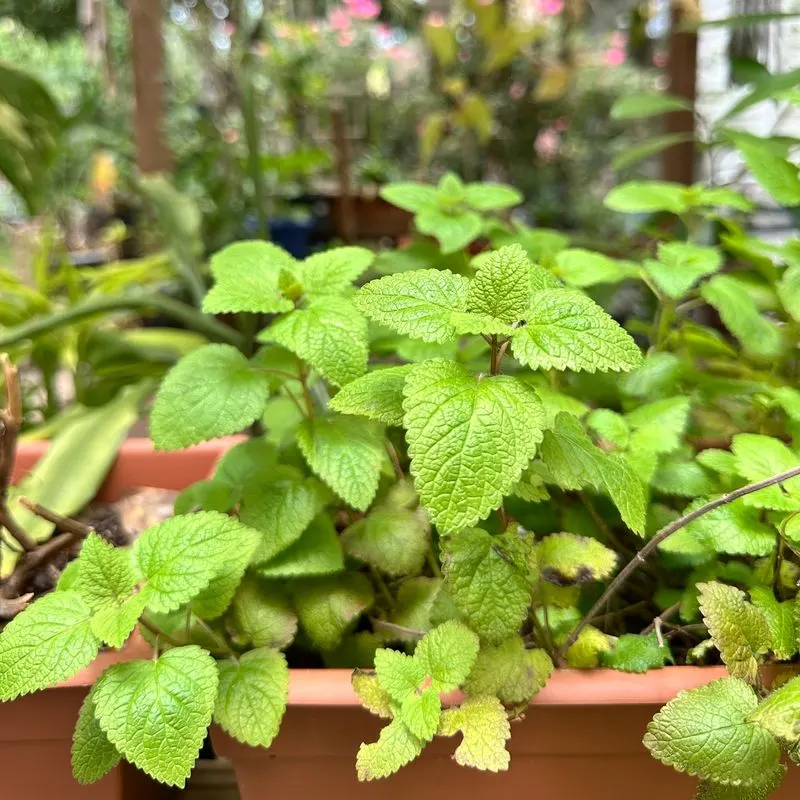
Lemon balm exudes a gentle citrus fragrance, making it a delightful addition to iced teas and cocktails. Its leaves are not just aromatic but also beneficial in soothing anxiety and promoting relaxation. Thriving in partial shade, this herb is a wonderful choice for those shady spots in your garden that need a touch of green. Regular trimming encourages bushy growth and a more abundant harvest. Next time you mix a cocktail, consider adding a few lemon balm leaves for an uplifted, refreshing twist.
Basil
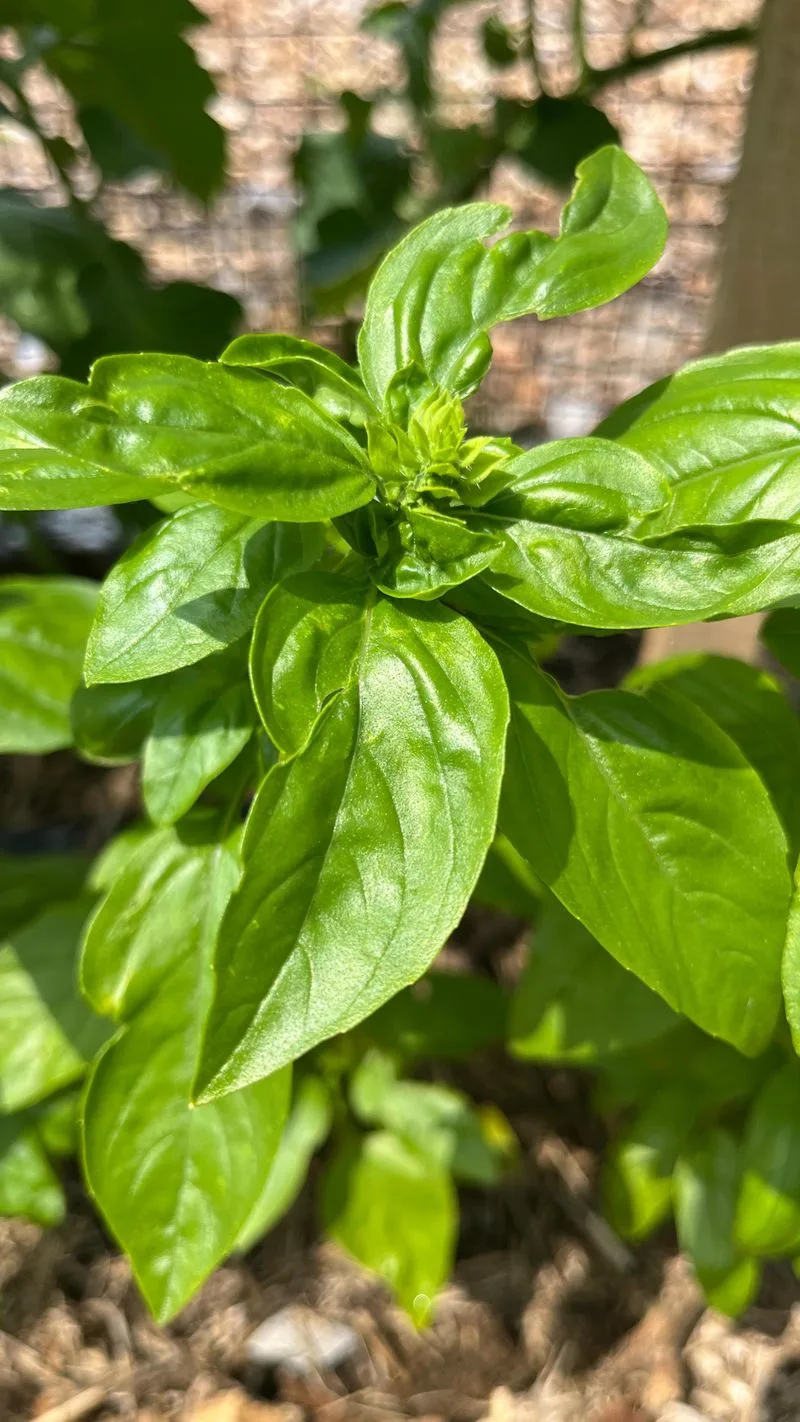
Basil’s peppery and slightly sweet notes complement a variety of cocktails, especially those with tomato or citrus. This vibrant herb thrives in warm, sunny locations, making it ideal for windowsills or garden beds. Basil is not just for the kitchen; its aromatic leaves elevate cocktails like a basil gin smash or a summer sangria. To keep it productive, pinch off the flower buds as they appear. With diverse varieties like Thai and lemon basil, you can experiment with flavors to find your perfect cocktail mix.
Rosemary
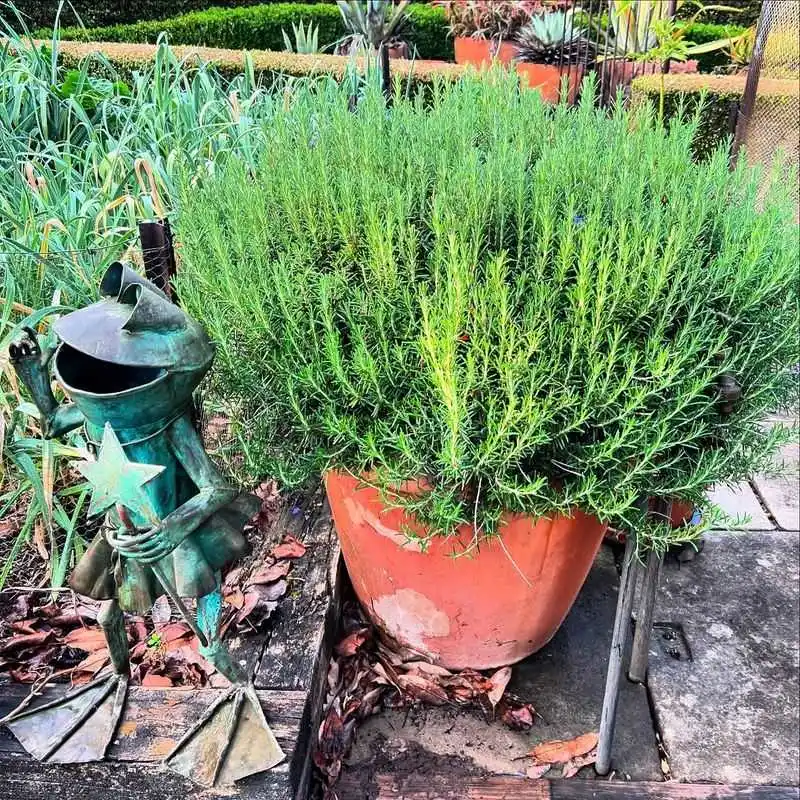
Rosemary’s piney aroma can transform cocktails with its savory notes. Perfect for infusing spirits or as a cocktail skewer, it’s an evergreen that continues to provide throughout the year. This herb prefers full sun and well-drained soil, making it suitable for pots or garden edges. Did you know? Rosemary was traditionally burnt as incense to ward off evil spirits. Keep it on your patio, and let this ancient herb add a touch of history and flavor to your drinks. Regular pruning encourages new growth.
Cilantro
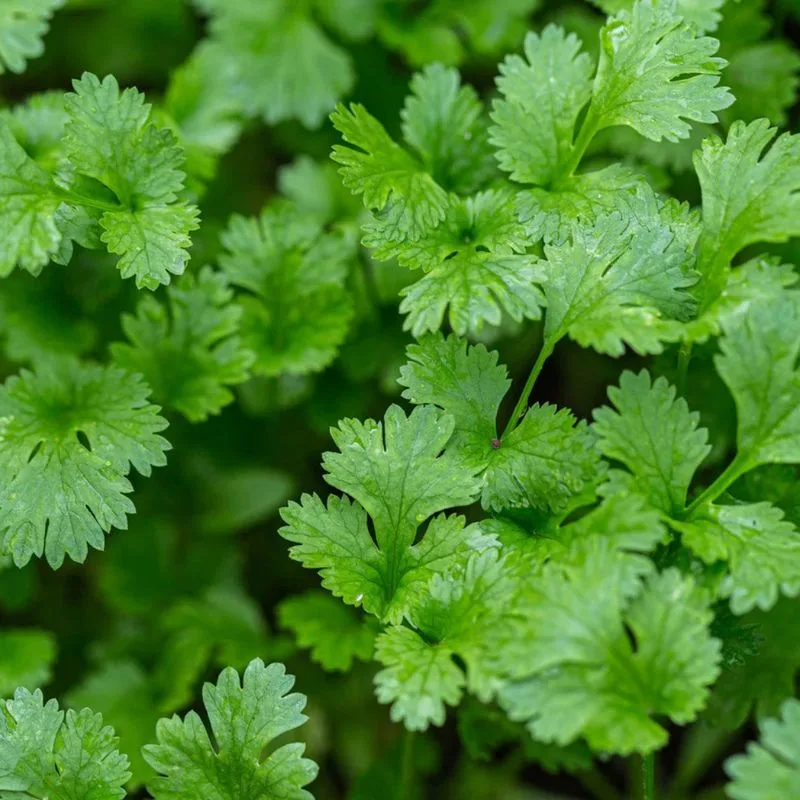
Cilantro adds a refreshing twist to cocktails, especially those with lime and tequila. Its distinctive flavor is polarizing but beloved in many cuisines around the world. Whether you’re muddling it into a margarita or using it as a garnish, cilantro can surprise you with its versatility. This annual herb thrives in cooler weather, so it’s best planted in spring or autumn. Keep it well-watered, and avoid the heat of midday sun to prevent bolting. Its feathery leaves are a feast for the eyes and the palate.
Thyme
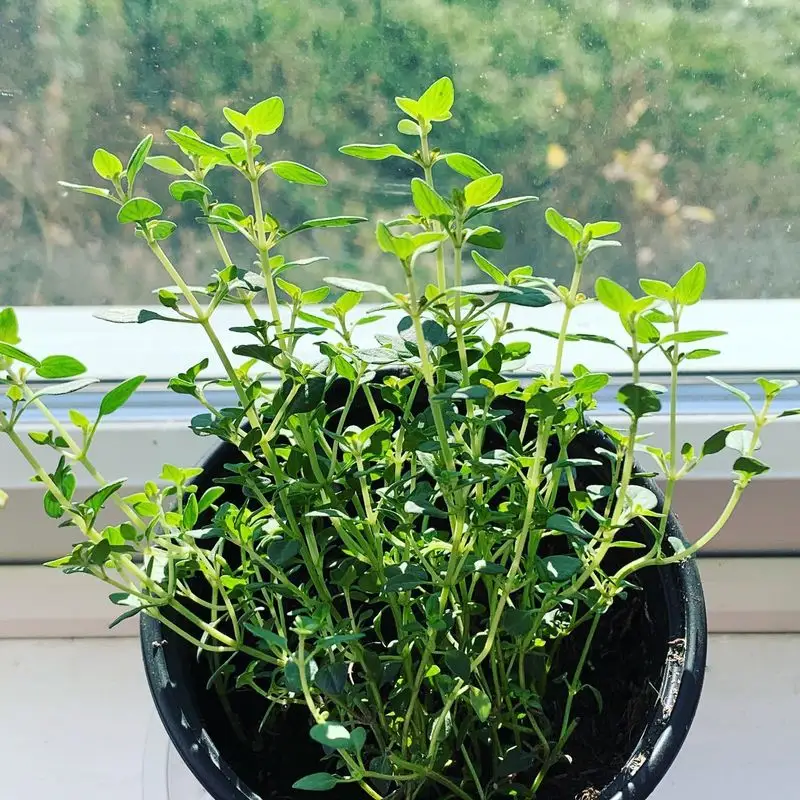
Thyme’s earthy complexity makes it a fascinating addition to cocktails, offering a depth of flavor that pairs beautifully with citrus and berries. This hardy perennial thrives in rocky or sandy soil, perfect for those challenging spots in your garden. It’s not just a culinary herb; its tiny flowers attract bees, promoting a healthy ecosystem. Try infusing thyme into syrups or using sprigs as garnishes. Its subtle fragrance and taste will intrigue your guests, making your cocktails stand out. Regular trimming keeps thyme thriving.
Lemon Verbena
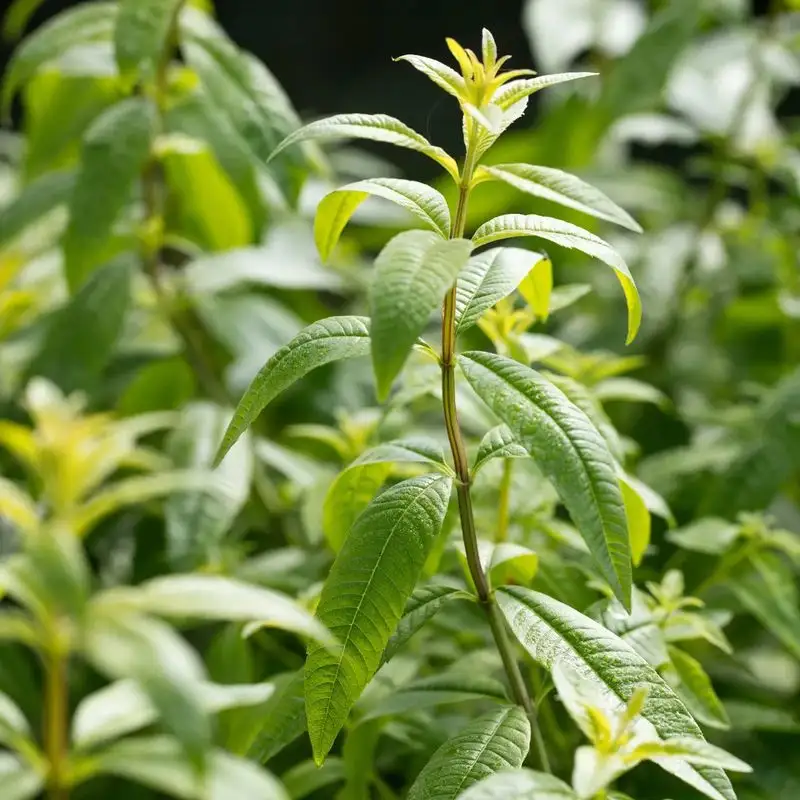
Lemon verbena offers a bright citrus flavor that’s unparalleled in the herb world. Ideal for teas, infusions, and cocktails, it adds a zesty note to drinks. This leafy herb prefers full sun and regular watering, making it a pleasant addition to any garden or balcony. It’s also known for its calming properties, providing a relaxing companion to your cocktail hour. Keep it pruned to maintain its shape and encourage new leaves. The invigorating aroma of lemon verbena will energize and refresh your senses.
Sage
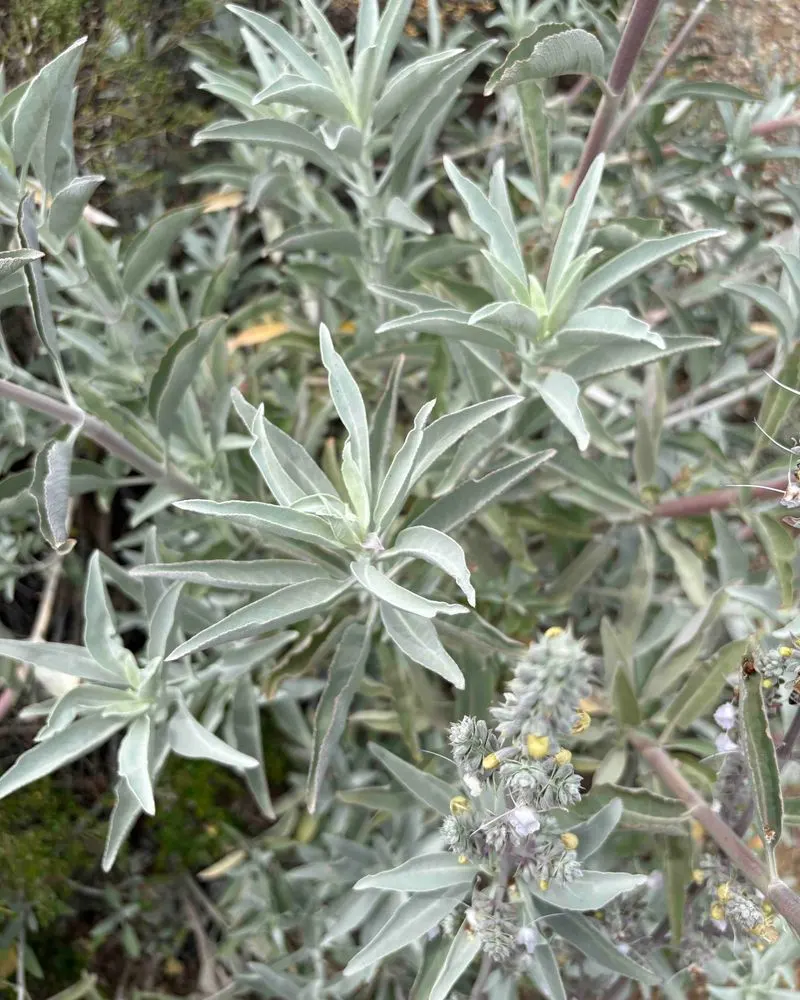
Sage’s savory aroma brings an unexpected dimension to craft cocktails, pairing well with bourbon and gin. The soft, velvety leaves make for a beautiful garnish, adding both visual appeal and aromatic depth. Often associated with festive meals, sage can also enhance the flavors of your favorite drinks. It thrives in well-drained soil and plenty of sunlight, making it a hardy addition to any cocktail garden. Let this ancient herb, revered for its medicinal uses, inspire your next cocktail creation with its rich history.
Chamomile
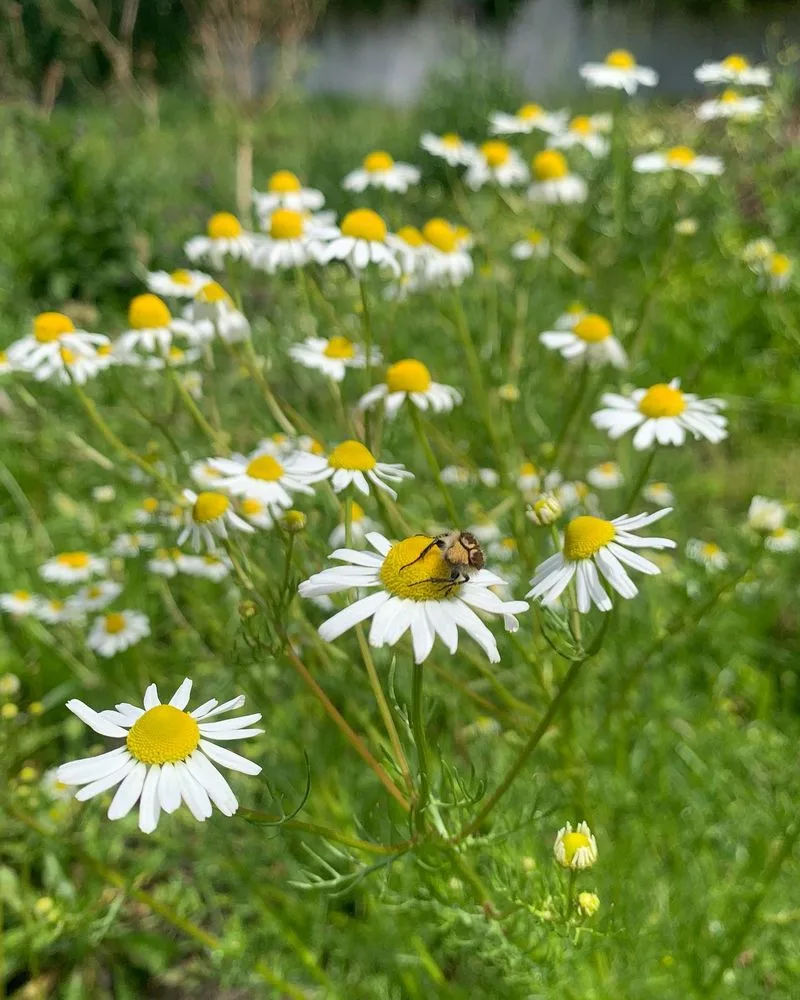
Chamomile isn’t just for tea; its gentle, apple-like flavor pairs delightfully with vodka and gin. These dainty, white flowers not only enhance your drinks but also add a touch of beauty to your garden. Perfect for calming evening cocktails, chamomile is easy to grow and prefers sunny locations. It’s a self-seeding annual, so once you’ve planted it, expect it to return year after year. The soothing scent of chamomile can transform any space into a serene spot for relaxation, making it a delightful garden companion.
Elderflower
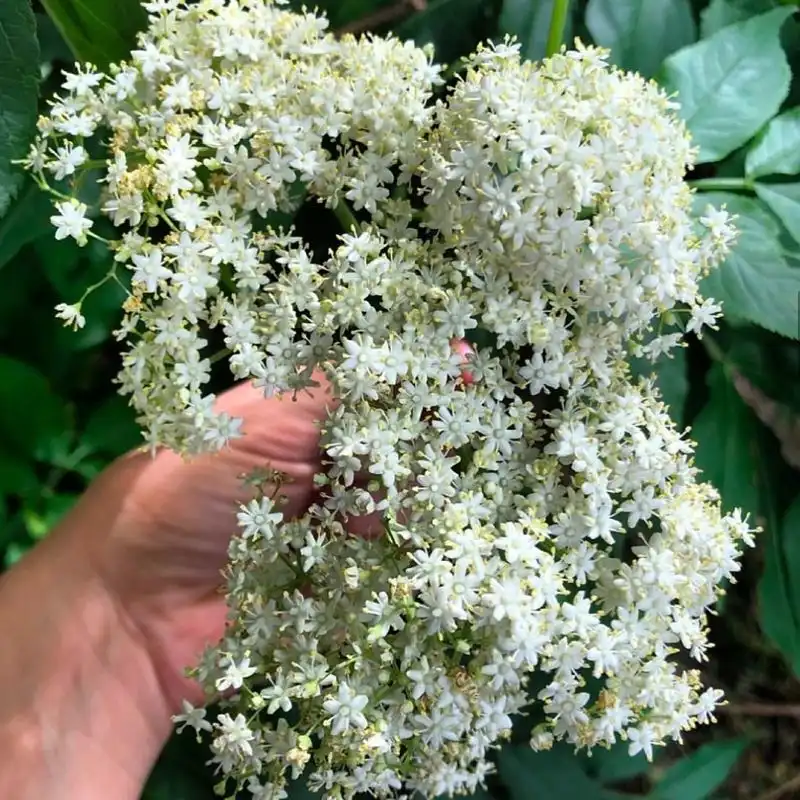
Elderflower brings a sweet, floral flavor to cocktails, often used in liqueurs and syrups. The creamy white flowers are as beautiful as they are fragrant, making them a stunning addition to your garden. Ideal for summer cocktails, elderflower infuses drinks with a delicate sweetness. This fast-growing shrub thrives in full sun and well-drained soil. Once established, it requires minimal care, offering a bounty of blossoms each year. Historically, elderflower has been used in traditional medicine, adding a touch of folklore to your garden.
Mint Julep Plant
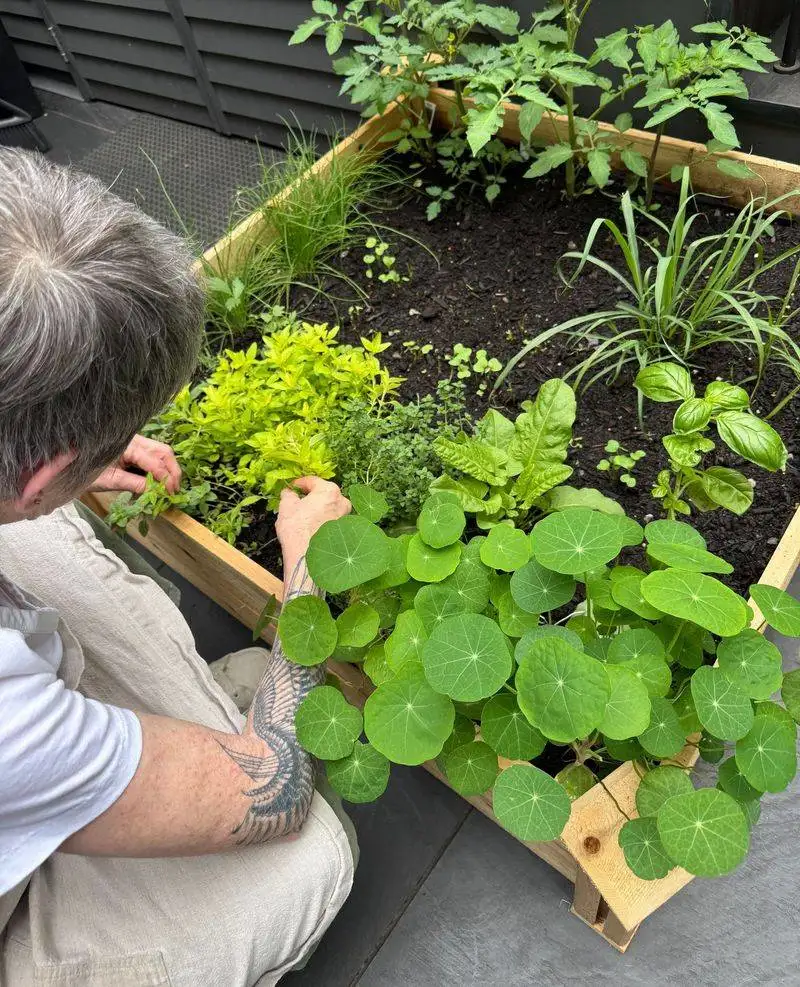
Not to be confused with ordinary mint, the mint julep plant is a unique variety with a subtle sweetness perfect for bourbon-based drinks. Its bright green leaves are a staple for the classic Mint Julep cocktail, offering a refined flavor. This plant thrives in both containers and garden beds, preferring partial sunlight. Regular watering keeps it lush and ready for your next cocktail hour. The mint julep plant’s rich history in Southern traditions makes it a charming addition to any cocktail enthusiast’s garden.
Stevia
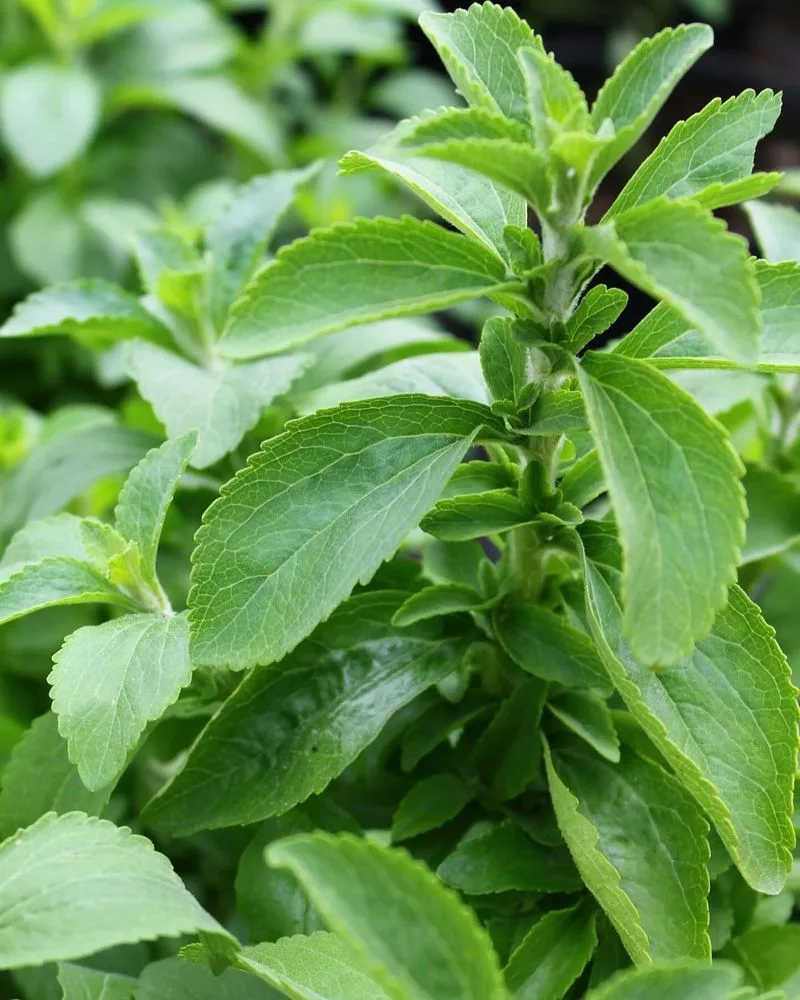
Stevia is nature’s sweetener, offering sugar-free sweetness perfect for cocktails. This herb’s leaves can be used fresh or dried to add natural sweetness to drinks without the calories. Growing stevia requires well-drained soil and plenty of sunlight, thriving best in warm climates. Did you know? Stevia has been used for centuries in South America as a sugar substitute. With its sweet leaves, stevia might just become your garden’s secret ingredient, providing a healthy alternative to sugar in your cocktail creations.
Borage
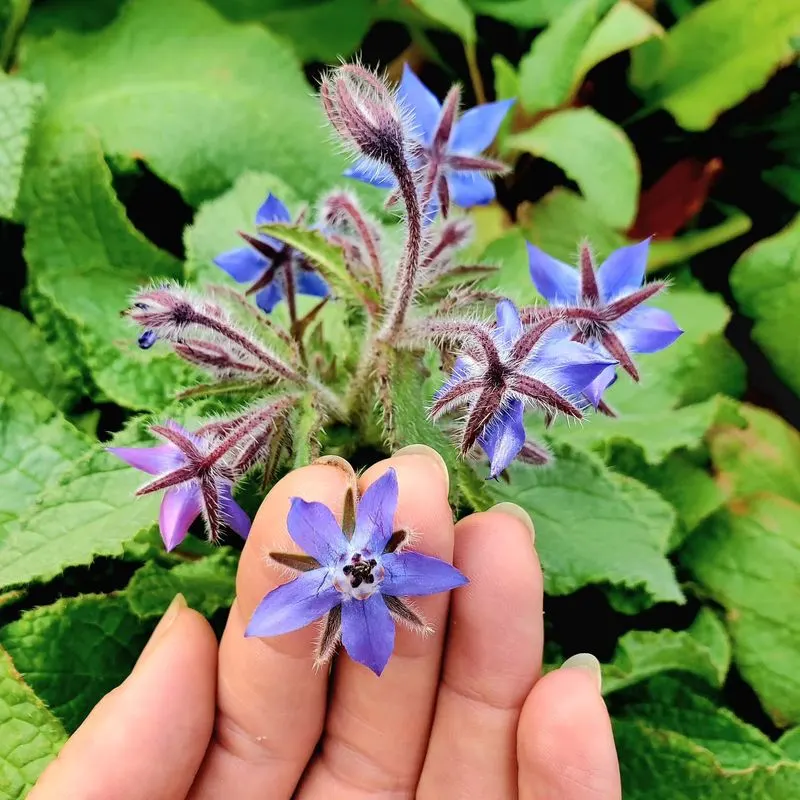
Known for its striking blue flowers, borage adds a cucumber-like flavor to summer cocktails. The edible blooms not only enhance beverages but also attract pollinators, supporting garden health. Borage is hardy and self-seeding, thriving in sunny spots with little maintenance. Its flowers and leaves can be frozen into ice cubes for a decorative touch. Historically, borage was believed to give courage to warriors, adding a whimsical touch to your garden. This plant combines beauty and utility, making it a delightful choice for cocktail lovers.
Pineapple Sage
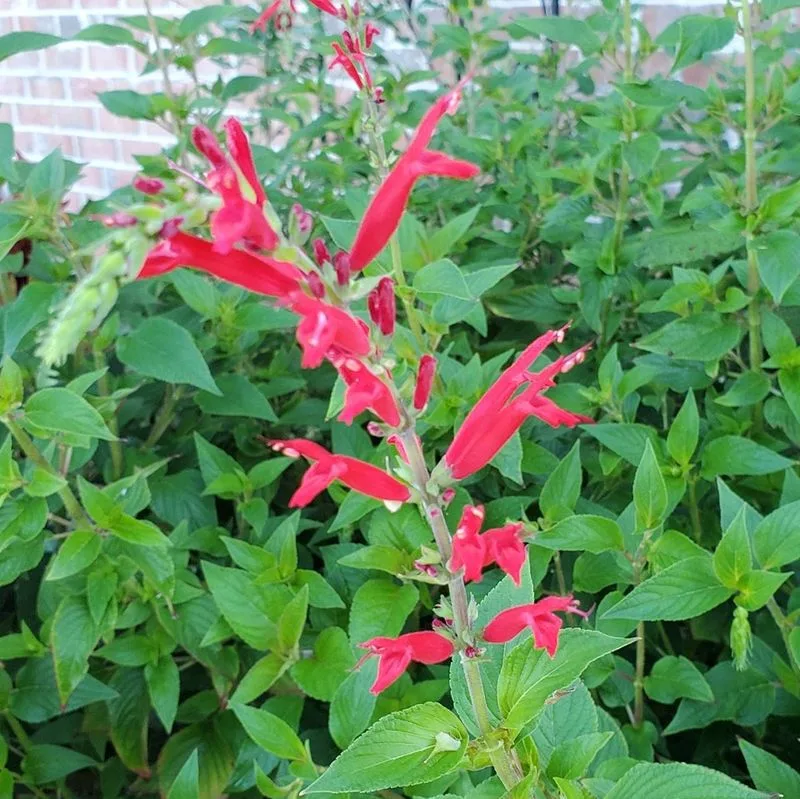
Pineapple sage captivates with its sweet pineapple scent, perfect for tropical cocktails. This vibrant plant boasts red flowers that attract hummingbirds and butterflies, bringing life to your garden. Ideal for sunny locations, it requires regular watering and well-drained soil. The leaves and flowers both add flavor and color to cocktails, making them versatile ingredients. Pineapple sage not only delights in drinks but also provides a visual feast, creating an inviting atmosphere. Let its tropical aroma transport you to a sunny paradise with every sip.
Fennel
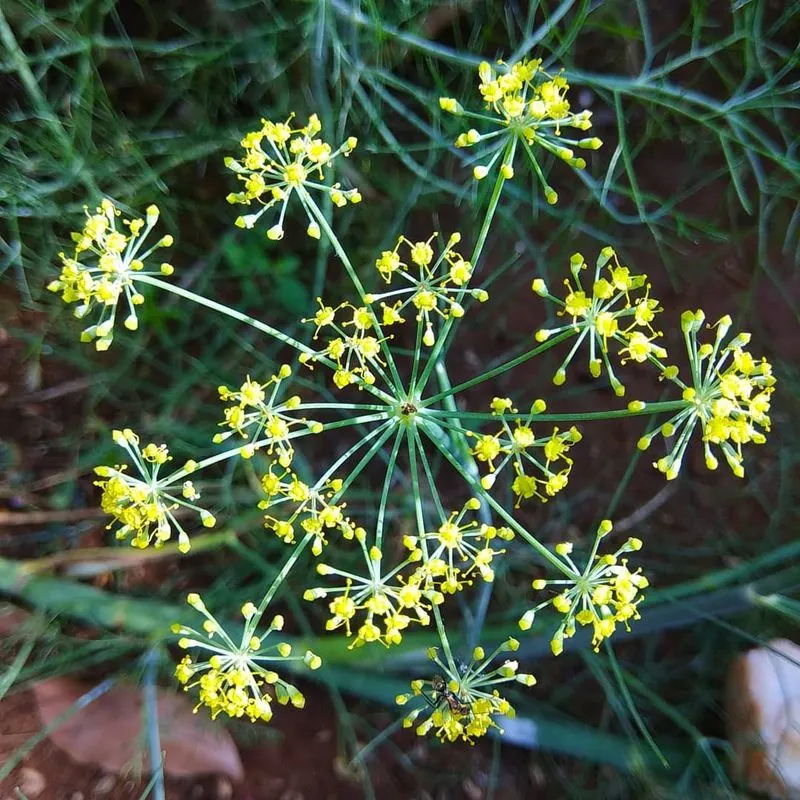
Fennel offers a subtle anise flavor, perfect for adding depth to gin or vodka cocktails. Its feathery fronds and bright yellow flowers make it a striking garden plant. Ideal for sunny, well-drained areas, fennel is a hardy perennial that can reach impressive heights. Use the fronds as garnishes or infuse the bulbs into spirits for a unique twist. Historically, fennel has been praised for its digestive benefits, making it a thoughtful addition to your cocktail repertoire. Embrace its aromatic charm and culinary versatility.
Marjoram
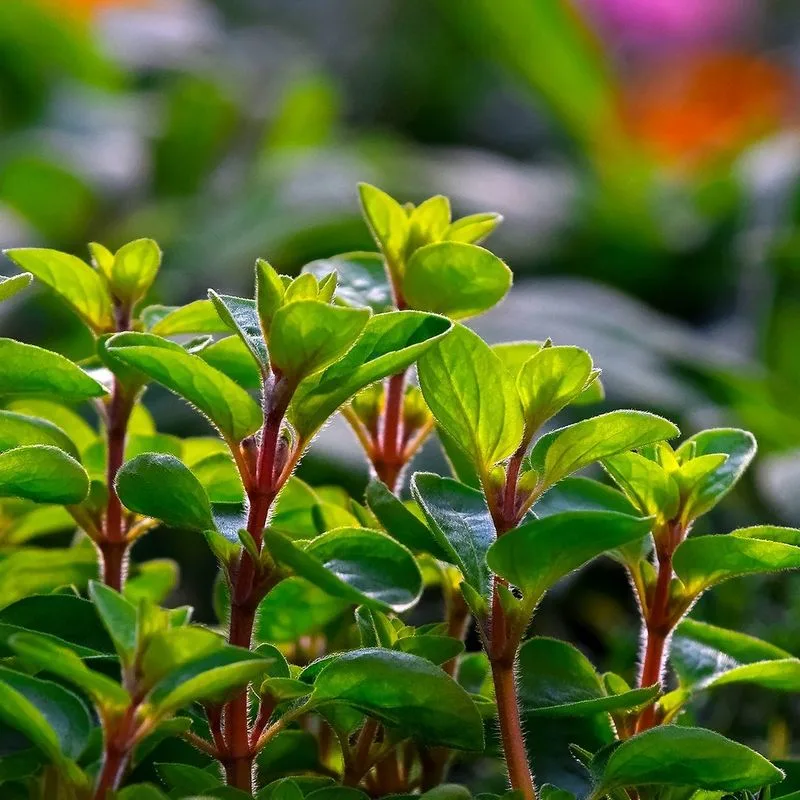
Marjoram’s mild and sweet flavor can elevate citrus-based cocktails, providing a delicate herbal note. Often overshadowed by its cousin oregano, marjoram deserves a spot in your cocktail garden for its versatility and subtlety. This herb thrives in warm climates and well-drained soil, making it a perfect fit for garden beds or pots. Regular trimming encourages bushy growth and a fresh supply of leaves. Incorporate marjoram into your drinks for a sophisticated twist that surprises and delights guests. Its gentle aroma promises to enchant any gathering.

